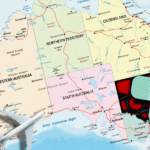Regional ministers have used the announcement to take a swipe at alleged federal inaction.
The single-employer model trialled in the Murrumbidgee area will be rolled out all over regional NSW, it was announced today, with the state accusing the Albanese government of dragging its feet in supporting the innovative model.
The announcement comes as NSW premier Dominic Perrottet and his Victorian counterpart Dan Andrews look to the National Cabinet to provide greater Medicare funding, highlighting the difficulties patients have in accessing a GP, as well as calling for more federal money for hospitals. National Cabinet is set to consider the findings of the Strengthening Medicare Taskforce on Friday.
Meanwhile, Nine newspapers today published a full-page open letter to the premier from the RACGP in which the college implored him not to introduce payroll tax for GPs and warned of the likely clinic closures and reduction in bulk billing that would follow such a move.
In their joint statement on the Murrumbidgee model, NSW Deputy Premier and Regional Minister Paul Toole and Regional Health Minister Bronnie Taylor said under the proposed rollout the state would need:
- the Commonwealth to guarantee exemptions statewide to allow up to 100 places per year, which reflects the size and distribution of regional NSW
- flexibility in exemptions that allow Medicare to follow the trainee, not attach to the facility or practice, and apply in different acute or primary services
- the Commonwealth to agree to support a full rollout rather than a small trial, on the basis that NSW has already developed and implemented a three-year trial successfully in the Murrumbidgee
- an annual review to ensure the model supports training and enhances workforce retention, primary and acute care delivery in regional, rural and remote areas
“Under our proposal, people in regional NSW will not have to wait years to see these rural generalist doctors working in our hospitals and our communities; every region will be ready to take on the next intake of medical graduates,” Ms Taylor said.
However, she also accused federal Labor of dragging its feet when it came to expanding the single-employer model.
Ms Taylor said the federal government earlier this week proposed a minor expansion of the trial in NSW, supporting two additional areas, but added this “fell well short” of what regional NSW needed.
“We’re proposing to roll out a significantly scaled up program, rather than just the two trials proposed by the Commonwealth, with up to 100 rural generalists to be recruited each year across all seven regional local health districts,” she said.
Mr Toole added there should be nothing to hold the Albanese government back from granting exemptions under the Health Insurance Act and that this was essential for the roll out to go ahead.
But the federal government has not been inactive when it comes to a single-employer model for GPs in training.
Last Friday, Prime Minister Anthony Albanese, Health Minister Mark Butler and Liberal Tasmanian Premier Jeremy Rockcliff announced a trial that would allow up to 20 Tasmanian GPs to be paid under a single-employer model.
The RACGP’s Tasmanian chair, Dr Tim Jackson, welcomed the trial, which is expected to begin in July, adding that the college had been pushing for such a trial in discussions both with federal and state governments.
The lack of healthcare services in rural and remote areas of the state had reached crisis point, with the single-employer model designed to attract and retain GPs in rural areas.
However, Mr Butler denied the government was showing a preference for Tasmania over NSW.
“Because the Murrumbidgee model has showed early positive results, the Albanese government has committed to expanding the trial to 10 sites nationally, as part of the $185 million health and aged care workforce package in the October Budget,” he said.
“We are not preferencing any state or territory. I’ve written to all of my state and territory counterparts seeking their vision for how the model might work in their state, to suit their individual circumstances. The NSW state government, along with most other state governments, has been in discussion with the Commonwealth and those discussions will continue.”
The single-employer model, or Murrumbidgee rural generalist training pathway, was first trialled in the Murrumbidgee LHD in 2020. It allows a seamless transition between hospital and GP training placements.
Trainees are employed on a contract of up to four years, and remuneration and award entitlements align with other medical specialty training giving certainty and the protection of the industrial award.
The NSW announcement puts the spotlight on healthcare funding, which will likely form the centrepiece of Friday’s National Cabinet meeting.
The RACGP’s NSW chair, Professor Charlotte Hespe, said it was crucial that leaders across all governments appreciate the gravity of the situation.
“I just want both state and federal governments to understand that general practice is at crisis point,” she told TMR. “I don’t want games to be played around who or what is paying for solutions, knowing that we need a number of solutions if we’re actually going to rescue general practice which is the foundational part, the most important part of our health system.”
The NSW announcement also comes as the RACGP and ACCRM celebrated the return to college-led GP training.
RACGP president Dr Nicole Higgins hailed it as “a historic day”, while national training director Dr James Brown said the college aimed to prioritise local community needs and areas where there are primary care shortages.
“Our practices and supervisors will see the benefits of locally focused training delivery supported by a national framework,” Dr Brown said. “They will have access to local program staff and educators who will provide support appropriate for the local context.
“They will also have access to high quality training resources. Our agreement with the Australian Therapeutic Guidelines will put a best practice resource into all GP training participants hands from day one of the college’s program.
The transition of the Australian General Practice Training program back to Australia’s specialist medical colleges, the RACGP and the Australian College of Rural and Remote Medicine, was announced in October 2017 by then federal health minister Greg Hunt.






